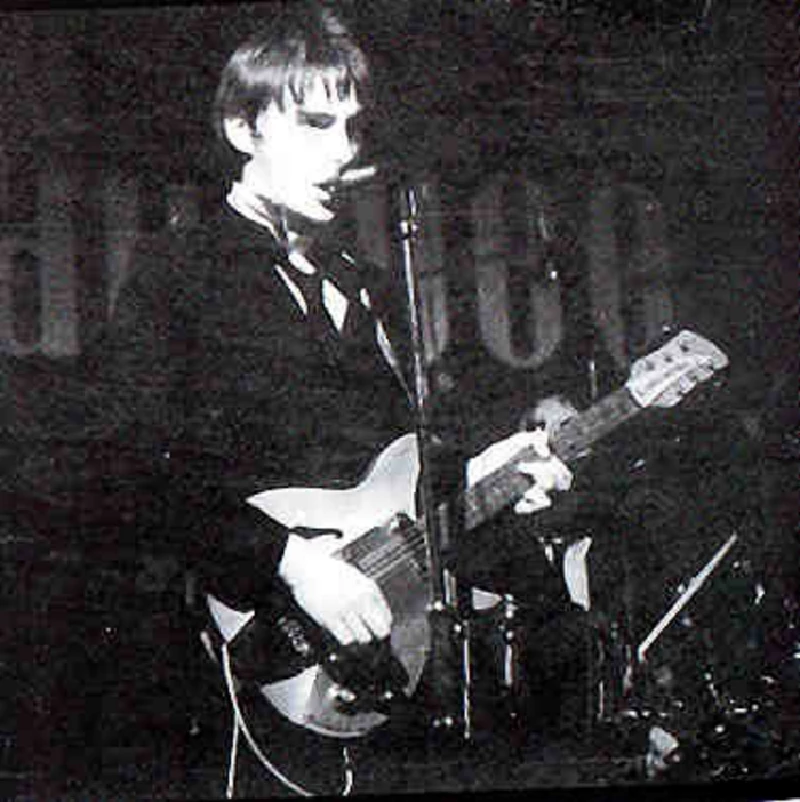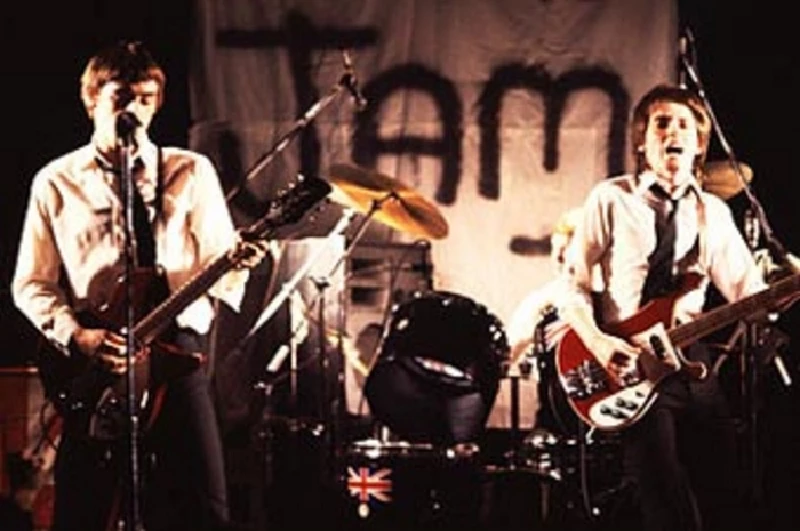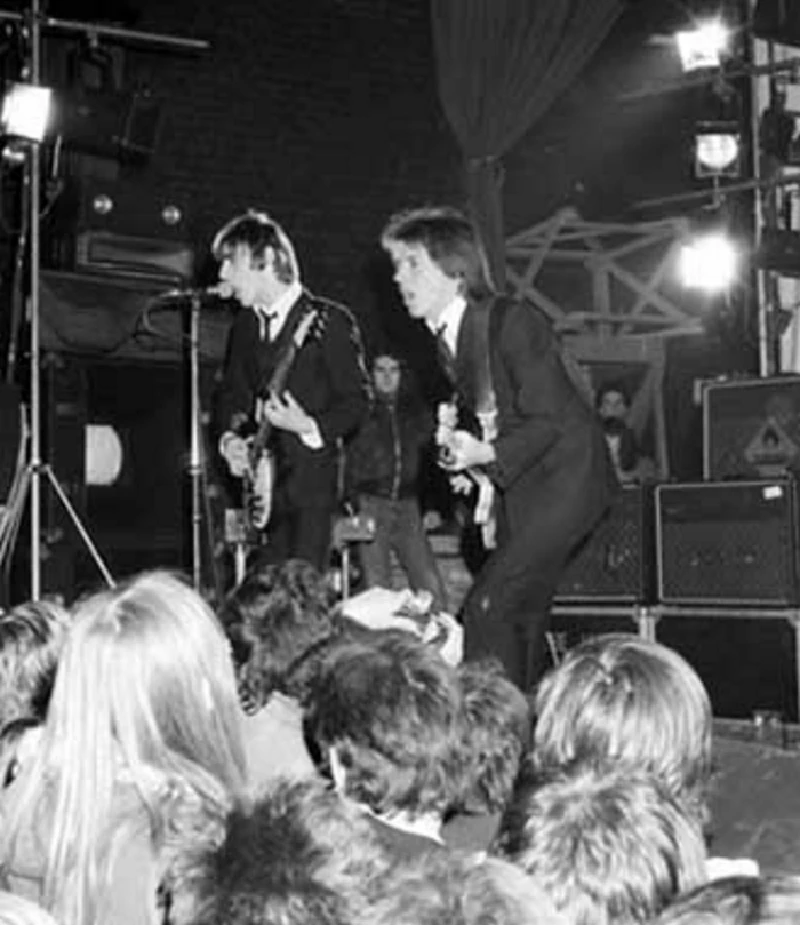Miscellaneous - The Jam and the Sound of the Suburbs
by Anthony Dhanendran
published: 16 / 6 / 2007

intro
In the latest in our 'Soundtrack of Our Lives' series, in which our writers tell of the personal impact of music on their lives, Anthony Dhanendran tells of the discovery during the Britpop era of the Jam
The Jam are a band almost perfectly made for 18-year-old boys. That's not intended as an insult, but nor is it a statement of fact; it merely seems that way – or at least it seemed so to me when I was 18. That was when – in the vein of those rather annoying Irish Tourist Board television commercials – I discovered the Jam. Until then it had been all about rock music: my musical education had taken in the Beatles, the Stones, Led Zeppelin and Bowie, but thus far it had stopped short of 1977, and restarted again around 1994. Oddly enough, it wasn't a single album that I first listened to, but the band's 1997 box set 'Direction, Reaction, Creation'. Of course, I had heard the famous singles – 'Going Underground', 'That's Entertainment' – but that was on the radio, stripped of context. This box was context itself, a whole honey pot of singles, album tracks, b-sides and all sorts of other artefacts. Paul Weller was only 18 when the Jam signed to Polydor, and the Jam's early music sounds like the music of 1977's 18-year-olds. That was the point – it was in the 1970's, it was in the 1990's and it is now. And Weller was an outsider. As Paolo Hewitt pointed out in his liner notes for the box set, The Jam were the least 'punk' of all the groups being signed around then. Weller was looked down upon by the metropolitan punk groups for being from Woking, that most suburban of sleepy Surrey commuter towns. But that was what gave him the ability to write songs from an outsider's perspective. And that's why 'Liza Radley' and 'Smithers-Jones' made sense to those of us who weren't part of the metropolis – the losers who had to make do with out-of-town shopping malls and plastic pubs. The sneering of John Lydon was all very well, but what did it have to say to someone 20 years later and several miles away from the King’s Road? The real sound of the suburbs, whatever anyone else may tell you, is a silent scream of impotent rage. Well, that and the gentle hum of strimmers whirring on a summer’s day. But Weller was able to capture that frustration – the feeling that this isn’t what you signed up for, that somewhere over the hill, a few stops down the line, there’s a party going on to which you haven’t been invited – better than almost anyone else of his time. 'Down In The Tube Station At Midnight' is the apotheosis of this: it is, quite literally, the sound of a man out of his depth. From the whirring and clanking of the tube train, through “they smelled of pubs, and Wormwood Scrubs” to the final, prosaic verse (“the wine will be flat and the curry’s gone cold”) it powerfully reinforces Weller’s notion that he was still – though the song comes from spectacular third album 'All Mod Cons', released at a time when the band were very much accepted by London’s pop aesthetes – an outsider here. Then there was the music. From the very first notes of first single 'In The City', you know this is something special. Their second classic, 'News Of The World', and the first single from second album 'This Is The Modern World', followed a scarcely believable nine months later. But I was digesting the whole thing at an even faster pace, as soon as I could load the box set’s discs into my CD player, and what a feast it turned out to be. It meant something, this homegrown English music – it depended on Yankee rhythms, sure, but the lyrics couldn’t have come from anywhere other than Woking, let’s be honest. Unlike all the earlier classic rock, unlike even the Beatles, this was music that meant something – it spoke – shouted, leered, spat, scowled – in a wholly familiar way. It wasn’t an Americanised drawl, nor was it a cockney sneer. We had been through Britpop – another kind of music that, by and large, spoke as I did – by that point. For better or for worse, that was my music. Oasis, Blur, Elastica, those were the people who shaped the 1990's for me. But it took The Jam, from 20 years prior, to put it into context. It explained Noel Gallagher’s respect for Weller, it filled in the gap in Damon Albarn’s distillation of British songwriting for Blur (Ray Davies, Chris Difford, Morrissey and Weller are the four pop writers who Albarn appeared to be channelling, the only other writers to write such vibrant – such English – characters in their songs). To the end of The Jam – and to the end of 'Direction, Reaction, Creation' – Weller never loses his sense of righteous irritation. It’s there in his most famous songs of the time – in 'Going Underground' he spits out a line about the public wanting what the public gets, and in 'That’s Entertainment' he casts a wry eye over “two lovers missing the tranquillity of solitude”. It’s there even in his more melodic tunes – “time is short and life is cruel” is one of the messages of 'A Town Called Malice'. There’s no real point to this jaunt down memory lane – discovering The Jam wasn’t the first step on the path to becoming Alex Turner for me, nor was it the (sole) reason I wanted to write about music. It certainly didn’t convince me that the Style Council were worth listening to. But it was a revelation and a realisation, certainly, and it made me think about how the music we make is about where we come from. Whether you’re a Black Country band trying to sound like the Delta blues, or you’re Las Vegas Mormons trying to sound like Shed Seven, your origin will always give you away. Weller’s origin, and mine – the half-town, not-quite-half-country of the suburb – is a place that doesn’t seem to matter, except to the political parties at general election time. The Jam, for a brief moment, made it matter.
Picture Gallery:-


most viewed articles
current edition
Carl Ewens - David Bowie 1964 to 1982 On Track: Every Album, Every SongArmory Show - Interview with Richard Jobson
John McKay - Interview
Colin Blunstone - Thalia Hall, Chicago, 16/7/2025
Billie Eilish - O2 Arena, London, 10/7/2025
Bathers - Photoscapes 1
Visor Fest - Valencia, Spain, 26/9/2025...27/9/2025
Loft - Interview
Sir Tim Rice - Interview
Robert Forster - Interview
previous editions
Manic Street Preachers - (Gig of a Lifetime) Millennium Stadium, Cardiff, December 1999Heavenly - P.U.N.K. Girl EP
Beautiful South - Ten Songs That Made Me Love...
Oasis - Oasis, Earl's Court, London, 1995
Peter Perrett - In Dreams Begin Responsibilities Interview Part One
Prolapse - Interview
Coldplay - Wembley Arena. London, 16/8/2022
Boomtown Rats - Ten Songs That Made Me Love....
Trudie Myerscough-Harris - Interview
Pixies - Ten Songs That Made Me Love...
most viewed reviews
current edition
Davey Woodward - Mumbo in the JumboSick Man of Europe - The Sick Man of Europe
Lucy Spraggan - Other Sides of the Moon
Phew, Erika Kobayashi,, Dieter Moebius - Radium Girls
Amy Macdonald - Is This What You've Been Waiting For?
Bush - I Beat Loneliness
Suzanne Vega - Flying With Angels
Alice Cooper - The Revenge of Alice Cooper
Blueboy - 2
Cynthia Erivo - I Forgive You
Pennyblackmusic Regular Contributors
Adrian Janes
Amanda J. Window
Andrew Twambley
Anthony Dhanendran
Benjamin Howarth
Cila Warncke
Daniel Cressey
Darren Aston
Dastardly
Dave Goodwin
Denzil Watson
Dominic B. Simpson
Eoghan Lyng
Fiona Hutchings
Harry Sherriff
Helen Tipping
Jamie Rowland
John Clarkson
Julie Cruickshank
Kimberly Bright
Lisa Torem
Maarten Schiethart